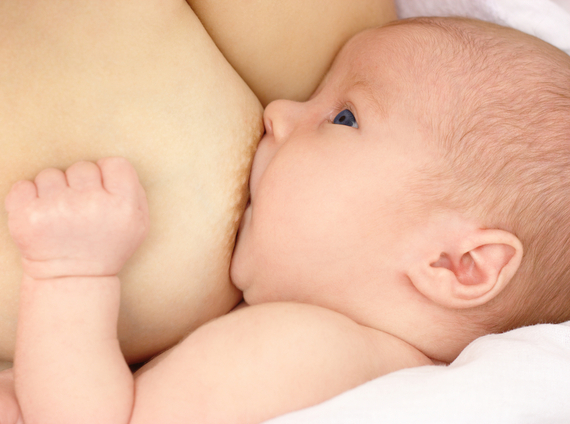 Getting used to breastfeeding can be tough for first time mums. Ignoring the breastfeeding myths and horror stories most women encounter during their pregnancy, mastering the art of breastfeeding your little one can be frustrating, upsetting and emotionally draining for mums.
Getting used to breastfeeding can be tough for first time mums. Ignoring the breastfeeding myths and horror stories most women encounter during their pregnancy, mastering the art of breastfeeding your little one can be frustrating, upsetting and emotionally draining for mums.
If you’re having difficulty, you should find a breastfeeding coach or to speak to other mums that you know. Alternatively, your doctor or health care provider should be able to help and there are books and websites (like this one) that offer advice on how to successfully breastfeed your child.
The benefits of breastfeeding
The World Health Organisation and HSE are big advocates of breastfeeding because of the many benefits it has for both mums and their infants.
For Baby
-
Has been found to reduce chances of breast and ovarian cancer
- Complete source of all the nutrients they need
- Boosts their immune system
For Mum
- Has been found to reduce chances of breast and ovarian cancer
- Helps women los pregnancy weight
- Helps mums to bond with their little ones
Essential breastfeeding items
Investing in a few breastfeeding essentials is a good way to be prepared for whatever your breastfeeding experience will be.
Breast pads are an absolute must, of course, but a breastfeeding cover for when you feed in public is a really handy item that many mums don’t think of – perfect for any mums who are nervous about breastfeeding in public or who have infants that are easily distracted. A breastfeeding pillow is also a wonderful resource, while a breast pump is considered life-saving by many mums.
Using nipple cream especially designed for breastfeeding will be a big help, since nipples can become cracked and sore. It is also helpful to remember that correct positioning and a good latch on will make breastfeeding far more comfortable for you and your baby.
Click through to read a full list of items that will help breastfeeding mums.
What to eat when breastfeeding
One big issue for mums is what they should eat when breastfeeding and what foods they should avoid.
A good tip is to avoid foods that are too spicy; blander foods won’t give your baby nasty digestive troubles or alter the taste of your milk too much.
It’s also important to bear in mind that in extreme cases of food allergies, the allergens can be passed on to your baby through your breast milk, so if you notice what seems to be a food allergy in your little one, it could be something in your diet.
Getting your baby to latch
If your little one isn’t latched on to the breast correctly, it can cause a lot of discomfort and pain for Mum. It also means Baby isn’t getting their milk. If you’re having a lot of trouble getting your baby to latch, then you could also try buying nipple shields, which makes the process easier for infants. Also avoid giving your baby a soother until you’ve been breastfeeding for at least a few weeks as it can cause them to have trouble breastfeeding.
There are a number of breastfeeding positions for you to try that can encourage baby to latch onto your breast.
Problems during breastfeeding
While breastfeeding is usually presented as a very natural thing, learning how to do it actually requires a lot of practice.
Cracked nipples, engorged breasts, thrush and even mastitis are just some of the problems that mums face when breastfeeding, but don’t give up! Nearly every mum who keeps going and speaks to their doctor or a healthcare professional will be able to breastfeed without any trouble later on.
If you’d like more information, read these expert tips on breastfeeding from our lactation consultant Helena Brady. We also have other helpful articles, like breastfeeding your baby when they’re sick, how to involve Dad when breastfeeding and breastfeeding on the go.






